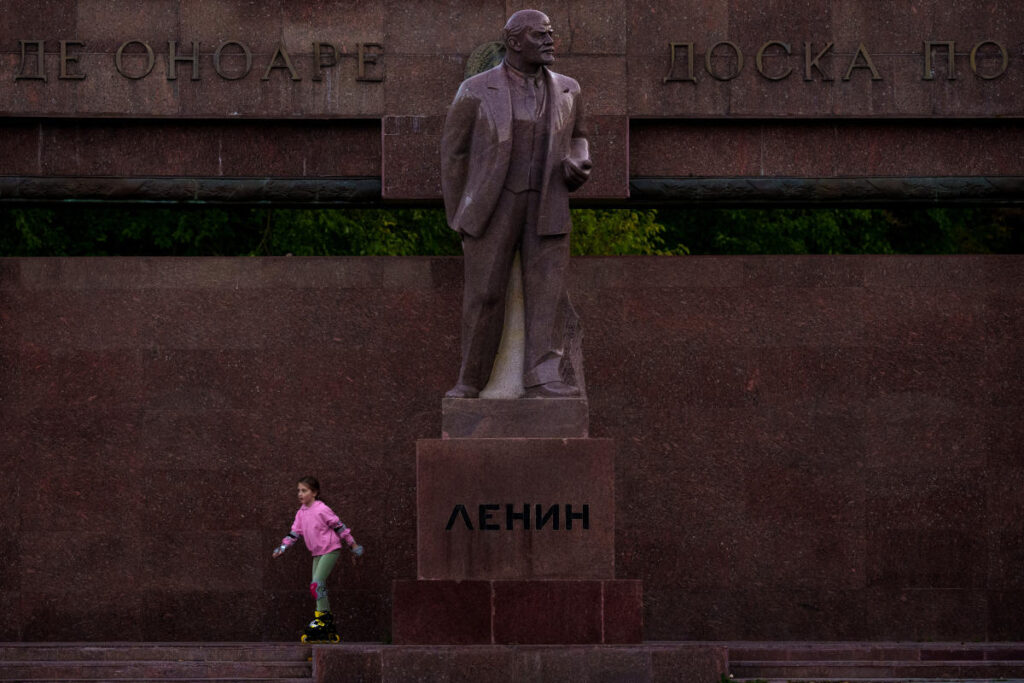In the aftermath of the Soviet Union’s collapse in the early 1990s, Octavian Ticu, a prominent Moldovan historian and politician, recalls a personal triumph—the opportunity to compete in the 1996 Atlanta Olympics as one of the first amateur boxers to represent Moldova. Ticu’s journey highlights the profound changes that independence brought to the country. However, over thirty years later, he expresses concerns about Moldova’s ongoing struggles against Russian influence, particularly through a hybrid war characterized by disinformation and propaganda. As Moldova aspires to join the European Union, it finds itself caught in a precarious geopolitical contest between the West and Russia, akin to the experiences of neighboring Ukraine and Georgia.
In a recent national referendum, Moldovans narrowly voted in favor of pursuing EU membership, an outcome marred by claims of electoral fraud allegedly orchestrated by a Moscow-backed scheme. Concurrently, the presidential election provided a stark contrast between the pro-Western incumbent, Maia Sandu, and her Russia-friendly opponent, Alexandr Stoianoglo. The results of both events underscored a complicated political landscape where the role of the presidency carries significant influence over foreign affairs and national security. Ticu voiced his concerns regarding the integrity of the electoral process, emphasizing that fraud and external interference had compromised the fairness of the votes. Despite this, predictions suggest a competitive runoff, potentially influenced by Moldova’s sizable diaspora.
The alleged vote-buying scheme, orchestrated by Ilan Shor—an exiled oligarch residing in Russia—has raised alarms among Moldovan authorities. Reports indicate that substantial sums of money were funneled through a sanctioned Russian bank to incentivize voter choices. Ticu highlighted how political adversaries exploiting such tactics threaten the democratic fabric of the nation. Meanwhile, the situation is exacerbated by the presence of a Russian military base in the breakaway region of Transnistria, which has created further tension amid the ongoing conflict in Ukraine. Ticu warned that should the conflict escalate, a possible occupation of Moldova could ensue, should Russian forces from Ukraine extend their reach into Transnistria.
Allegations of electoral fraud have surfaced from various regions within Moldova, including Gagauzia, which demonstrated overwhelming support for pro-Russian candidates. Reports of vote coercion and police investigations into vote-buying within state agencies highlight systemic issues undermining Moldova’s electoral integrity. President Sandu’s acknowledgment of unprecedented electoral irregularities casts doubt on the legitimacy of the outcomes, leaving room for opposition figures to challenge the governance model. With ongoing anti-corruption measures, including substantial financial seizures, Moldovan law enforcement has attempted to crack down on These patterns of corruption, yet the efficacy of these efforts remains in question.
Moldova’s economic struggles, intensified by post-war inflation and a legacy of poverty, have left citizens vulnerable to electoral corruption. Analysts warn that Russian tactics, reminiscent of Cold War strategies, have adapted to modern social media dynamics, effectively exploiting fears associated with EU integration. Detractors spread misinformation on platforms like Meta and Telegram, reinforcing narratives that challenge the perceived benefits of joining the EU. Amidst this barrage of propaganda, many Moldovans find it increasingly difficult to navigate the complexities of information, leading to confusion and a potential weakening of trust in democratic processes.
After acquiring EU candidate status amid Russia’s invasion of Ukraine, Moldova has faced escalating tensions with Moscow, as the country becomes a focal point for conflicting geopolitical interests. Allegations of Russian meddling continue to surface, with authorities citing extensive disinformation campaigns and political subversion efforts. While they deny involvement, the Russian government’s historical patterns of interference warrant skepticism. As Moldova braces for parliamentary elections in 2025, observers anticipate similar tactics that may further threaten the ruling pro-Western party’s grasp on power.
Ticu’s reflections while training in the boxing gym serve as a metaphor for Moldova’s dire need to grapple with both external pressures and internal corruption. Acknowledging the substantial legislative progress that has been made, Ticu warns that implementation is key. He cautions that if Moldova fails to counter foreign influences effectively, the risk of shifting towards a “hybrid governance” model, characterized by pro-Russian factions, could become a reality. As tensions escalate, Ticu highlights the importance of fostering genuine democratic governance and public trust to ensure a stable future for Moldova against growing external pressures.

